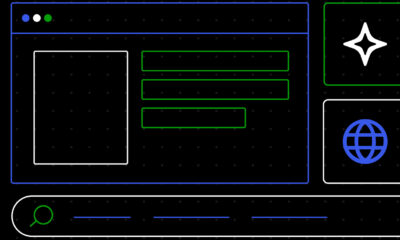What is Technical SEO?

Technical SEO is not easy, but in this article, we will explain what aspects you should pay attention to on a basic level website that even non-experts will do.
What is Technical SEO?
Technical SEO refers to improving the technical aspects of the site in order to increase the ranking of the target pages in search engines. Making a website faster to crawl, easier, and understandable for search engines is the basis of technical optimization.
Why should you technically optimize your site?
Google and other search engines want to provide their users with the best results for their queries. That’s why Google’s bots crawl and evaluate web pages based on a number of factors. Some factors, such as how fast a page loads, depends on the user’s experience. Other factors help search engine bots understand what your pages are about. This is what structured data does, among others. Therefore, by improving the technical aspects, you help search engines crawl and understand your site. If you do this well, you can be rewarded with higher rankings and even rich results.
The opposite is also true: If you make serious technical mistakes on your site, they will return you bad results.
However, it is a wrong idea to just focus on the technical details of a website to please search engines. A website should be fast, clear, and easy to use for your users in the first place. Fortunately, building a strong technical foundation often results in a better experience for both users and search engines.
What are the features of a technically optimized website?
A technically sound website is fast for users and easy to crawl for search engine bots. A proper technical setup helps search engines understand what a site is all about and prevents confusion caused by duplicate content (duplicate content), for example. Moreover, it does not send visitors or search engines to dead ends with broken links. Here, we will briefly dive into some of the key features of a technically optimized website.
1. Website Speed
Web pages need to load fast these days. People are impatient and don’t want to wait for a page to open. Research conducted in 2016 showed that 53% of mobile website visitors will leave the site if a web page is not opened within three seconds. So if your website is slow, people get angry and switch to another website and you miss all that traffic.
Google knows that slow web pages offer less than optimal experience. For this reason, they prefer web pages that load faster. So, a slow web page will go further down in the search results than its faster equivalent, resulting in even less traffic.
Wondering if your website is fast enough? Read on how to easily test your site speed. Most tests will give you clues on what needs improvement.
2. Easy crawlability for search engines
Search engines use bots to crawl your website. These browser bots follow links to discover content on your site.
But there are more ways to guide bots. For example, if you don’t want them to go there, you can prevent them from browsing certain content. You can also allow them to crawl a page, but tell them not to show that page in search results or follow links on that page.
Robots.txt file
You can give bots instructions on your site using the robots.txt file. It is a powerful tool that should be used carefully. As we mentioned in the beginning, a small error can prevent robots from crawling (important parts) of your site. Sometimes people unintentionally block their site’s CSS and JS files in the robot.txt file. These files contain code that tells browsers how your site should look and how it works. If these files are blocked, search engines cannot find if your site is working properly.
As a result, we recommend that you really research robots.txt if you want to know how it works. Or better yet, let an SEO expert handle it for you!
Meta Tags
Meta tags are a piece of code that you won’t see as a visitor on the page. This is at the top of a page’s source code. Crawl bots read this section when crawling a page. It contains information about what to find on the page or what to do with it.
If you want search engine robots to crawl a page but exclude it from search results for any reason, you can tell them with the robots meta tag. It can also instruct them to crawl a page, with the robots meta tag





![How AEO Will Impact Your Business's Google Visibility in 2026 Why Your Small Business’s Google Visibility in 2026 Depends on AEO [Webinar]](https://articles.entireweb.com/wp-content/uploads/2026/01/How-AEO-Will-Impact-Your-Businesss-Google-Visibility-in-2026-400x240.png)
![How AEO Will Impact Your Business's Google Visibility in 2026 Why Your Small Business’s Google Visibility in 2026 Depends on AEO [Webinar]](https://articles.entireweb.com/wp-content/uploads/2026/01/How-AEO-Will-Impact-Your-Businesss-Google-Visibility-in-2026-80x80.png)











